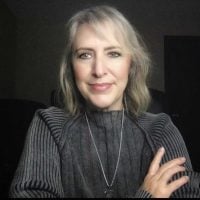View this post on Instagram
Grief does not begin with us.
It is an inheritance. An echo that moves through blood and bone, whispering stories too long silenced.
Many of us carry grief that was never fully mourned by those who came before us—grief that was suppressed, buried beneath survival, or too dangerous to name in its time. This is the realm of ancestral grief.
Ancestral grief lives in our nervous systems, in our reactions, in the grief that feels larger than our own lives. It is the grief of land stolen, cultures erased, bodies broken by violence, and families torn apart. It is the sorrow of migrations, of exile, of genocide and colonization. It is the mourning of languages lost and songs unsung.
When we feel a sorrow that seems untraceable to a single event, we may be touching this collective pain. And rather than fear it, we are invited to honor it. To give it voice. To become the generation that turns toward it with compassion.
To grieve ancestrally is to remember.
It is to light candles not only for our personal losses, but for the unnamed dead.
It is to pour water for the women whose tears were never witnessed.
It is to drum for the men whose cries were swallowed by war.
It is to sing for the children taken, the elders silenced, the generations lost.
We carry this grief not because we are broken, but because we are bridges.
We are the living prayers of our ancestors’ longing.
And when we grieve consciously, we do not just heal ourselves—we heal in both directions: backward and forward.
This is the power of collective remembrance.
It is choosing not to forget.
It is choosing not to numb.
It is choosing to honor what was, so that what will be can rise on sacred ground.
Remembrance rituals anchor us in this work. Visiting ancestral lands. Speaking their names aloud. Writing their stories. Listening for their presence. Creating altars. Cooking their foods. Learning their songs. These acts are not merely nostalgic—they are reparative. They say: You are not forgotten. You live on through me.
As we honor ancestral grief, we must also honor ancestral strength. Our lineages did not just pass down trauma—they passed down resilience, wisdom, ritual, and fierce love. We are the living embodiment of both pain and power. We do not have to carry the wound without also receiving the medicine.
To grieve ancestrally is to become a vessel for transmutation.
It is to say yes to the work of remembering.
Yes to the work of healing.
Yes to becoming a good ancestor in return.
So light your candle. Pour your water. Tell their stories.
And let your tears be praise.
Grief is not only personal—it is political, spiritual, ancestral.
And when we remember together,
we become the ground from which a new future may finally grow.
“When we grieve consciously, we mend more than our own hearts—we mend the broken threads of the ancestors, and we weave something stronger for those yet to come.” ~ Freyja Inanna
~
 Share on bsky
Share on bsky

Read 0 comments and reply